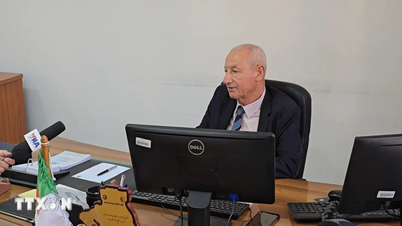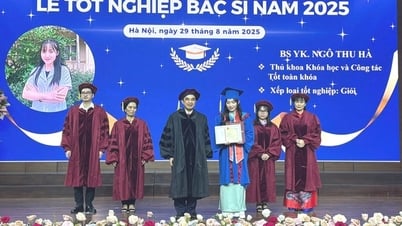Israeli scientists have announced a major breakthrough: blocking a specific protein could help prevent eosinophilic esophagitis (EoE), a painful food allergy-related disease, from developing in its early stages.
The discovery, announced by Tel Aviv University on August 11, could pave the way for targeted treatments that could spare patients from severe symptoms and restrictive diets.
EoE is a chronic inflammatory condition of the esophagus that affects about 1 in 2,500 people. Flare-ups are caused by an abnormal allergic reaction to certain foods or environmental factors, leading to inflammation and tissue changes in the esophagus.
If left untreated, scarring can cause the esophagus to narrow, making it painful and difficult to swallow. In severe cases, the esophagus can even tear.
Currently, there is no cure for EoE, and the disease can only be controlled through strict diet and medication.
However, a team at Tel Aviv University has identified a protein - thymic stromal lymphopoietin (TSLP) - that plays a key role in the disease's development.
Neutralizing this protein can help completely prevent or significantly reduce the severity of EoE.
“EoE is a food allergy that causes chronic inflammation in the esophagus, due to an abnormal immune response to foods such as milk, eggs, wheat, nuts, fish... This disease is characterized by the accumulation of eosinophils, a type of white blood cell that does not appear in healthy esophagus,” said Professor Ariel Munitz, who led the research team.
Symptoms include difficulty swallowing, chest and abdominal pain, food getting stuck in the throat, and in children it can cause developmental delays. EoE is often associated with asthma and atopic dermatitis.
Current treatments are mainly strict diets or special nutritional formulas, but their effectiveness is limited.
“Over the past decade, the incidence of EoE has been alarmingly increasing globally, including in Israel,” warns Professor Munitz. “We are studying the role of immune system components to find new therapeutic targets, not only for EoE but also for other allergic diseases.”
Using a model that mimics human EoE, the team focused on epithelial cells — the protective layer of cells that line the esophagus. In allergic conditions, these cells release a variety of inflammatory substances when exposed to allergens.
The team found that two proteins, IL-33 and TSLP, were secreted at high concentrations in the EoE model, and that immune cells in the esophagus had receptors for both proteins.
To determine which protein was more important, the team used genetic engineering to create models lacking each protein. The results were clear: the lack of IL-33 left little to no change, but removing TSLP dramatically reduced the severity of the disease—in many cases, the disease did not develop at all.
Additionally, antibody treatments aimed at neutralizing TSLP have shown similar results, with significant reduction in symptoms.
Genetic and computational biology analyses confirm that TSLP is a “master regulator” in disease progression.
If future clinical trials confirm these results, TSLP neutralization could become a targeted, less invasive treatment that spares patients years of pain and restrictive diets.
“EoE is a painful condition that is becoming increasingly common worldwide ,” said Professor Munitz. “Our research offers real hope for a radical treatment for the disease.”
Source: https://www.vietnamplus.vn/phat-hien-phuong-phap-ngan-chan-benh-di-ung-thuc-pham-ngay-tu-khi-khoi-phat-post1055208.vnp



![[Photo] Marching together in the hearts of the people](https://vphoto.vietnam.vn/thumb/1200x675/vietnam/resource/IMAGE/2025/8/31/8b778f9202e54a60919734e6f1d938c3)

![[Photo] General Secretary To Lam receives Chairman of the National People's Congress of China Zhao Leji](https://vphoto.vietnam.vn/thumb/1200x675/vietnam/resource/IMAGE/2025/8/31/5af9b8d4ba2143348afe1c7ce6b7fa04)

![[Photo] The first meeting of the Cooperation Committee between the National Assembly of Vietnam and the National People's Congress of China](https://vphoto.vietnam.vn/thumb/1200x675/vietnam/resource/IMAGE/2025/8/31/f5ed4def2e8f48e1a69b31464d355e12)
![[Photo] National Assembly Chairman Tran Thanh Man welcomes and holds talks with Chairman of the National People's Congress of China Zhao Leji](https://vphoto.vietnam.vn/thumb/1200x675/vietnam/resource/IMAGE/2025/8/31/9fa5b4d3f67d450682c03d35cabba711)
























































































Comment (0)